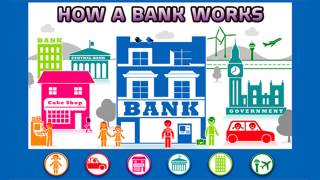
Navigating the Financial Landscape: A Comprehensive Guide to Financial Wellness
Advertisement
In the intricate tapestry of our lives, financial well-being forms a crucial thread, influencing our choices, aspirations, and the pursuit of our dreams. In this article, we embark on a journey through the world of finance, exploring key principles and strategies that empower individuals to achieve financial wellness and navigate the complexities of the financial landscape.
Understanding Financial Foundations: Building Blocks for Success
At the core of financial wellness lies a solid foundation built upon understanding fundamental concepts. Budgeting, saving, and investing are the cornerstone principles that lay the groundwork for financial stability. Budgeting, often regarded as the compass of financial planning, empowers individuals to allocate resources wisely, striking a balance between income and expenditure.
Savings act as a safety net, providing a cushion for unforeseen expenses and enabling individuals to pursue future goals with confidence. Concurrently, investing transforms stagnant savings into wealth-building assets, offering the potential for long-term growth. As the saying goes, "Don't work for money; make money work for you."

Debt Management: A Balancing Act
While debt can be a useful tool for achieving goals such as homeownership or education, its management is pivotal to financial health. Understanding the difference between good and bad debt is essential. Good debt, such as a mortgage or student loan, may contribute to long-term financial goals. Conversely, bad debt, often accrued through high-interest credit cards, can impede financial progress.
A strategic approach to debt management involves prioritizing high-interest debt, negotiating favorable terms where possible, and implementing a repayment plan. By addressing debt systematically, individuals regain control of their financial destinies, paving the way for a debt-free future.
Investing Wisely: Navigating the Financial Markets
The realm of investing can be both exciting and intimidating. From stocks and bonds to real estate and mutual funds, the options are diverse. Successful investing requires a blend of research, risk management, and a long-term perspective. Diversification, the proverbial "not putting all your eggs in one basket," minimizes risk and maximizes potential returns.
Staying informed about market trends, economic indicators, and the principles of asset allocation empowers individuals to make informed investment decisions. Whether through a DIY approach or with the guidance of a financial advisor, strategic investing is a pivotal component of financial wellness.
Emergency Funds: Shielding Against Life's Surprises
Life is unpredictable, and financial wellness hinges on the ability to weather unexpected storms. Establishing an emergency fund is akin to building a financial umbrella for rainy days. This fund, typically three to six months' worth of living expenses, acts as a safety net, providing peace of mind in the face of unforeseen circumstances such as job loss, medical emergencies, or major household repairs.

Financial Literacy: Empowering Decision-Making
In the ever-evolving financial landscape, knowledge is power. Financial literacy equips individuals with the tools to make informed decisions about money matters. From understanding credit scores and evaluating insurance options to deciphering investment jargon, a foundation of financial literacy transforms financial novices into savvy navigators.
Numerous resources, including online courses, books, and financial education programs, facilitate the acquisition of financial knowledge. By embracing a commitment to continuous learning, individuals enhance their financial literacy, fostering confidence and competence in managing their financial destinies.
The Role of Goal Setting: A Roadmap to Success
Financial wellness is not a destination; it's a journey marked by milestones and achievements. Setting clear, achievable financial goals provides a roadmap for this journey. Whether aiming to purchase a home, fund education, or retire comfortably, goals serve as beacons, guiding financial decisions and instilling a sense of purpose in day-to-day financial activities.

Each goal becomes a stepping stone toward broader financial success. By breaking down larger objectives into manageable tasks and celebrating incremental victories, individuals stay motivated and focused on their financial journeys.
Conclusion: Embracing Financial Wellness as a Lifestyle
achieving financial wellness is not a one-time accomplishment but an ongoing commitment to nurturing a healthy financial lifestyle. By understanding financial foundations, managing debt wisely, making informed investment decisions, establishing emergency funds, prioritizing financial literacy, and setting meaningful goals, individuals empower themselves to navigate the financial landscape with confidence and resilience. The journey to financial wellness is a personal and transformative expedition, and with each step, individuals sculpt a more secure and prosperous future.
Advertisement
Advertisement
- Previous article
- Decoding Travel Credit Cards: A Comprehensive Guide to Choosing Your Ideal Companion!
- Next article
- Mastering the Art of Credit Card Approval!
Advertisement
OTHER NEWS

Unraveling the Tax Mysteries of Credit Card Rewards!
BY Wendy

Navigating the Pros and Cons: A Comprehensive Guide to Buying Newly Built Homes!
BY Wendy

Understanding Reinsurance: How it Benefits the Insurance Industry and Consumers.
BY Wendy

About Real Estate, These you Need to Know!
BY Little Grapes

Demystifying Banking: How the Financial System Works
BY Little Grapes

Understanding Universal Life Insurance: A Comprehensive Overview!
BY Wendy
RECENT NEWS
-

Demystifying Bitcoin
-

Securing and Maintaining High Limit Credit Cards: A Comprehensive Guide!
-

The investment value of men’s watches
-

Guarding Against Credit Card Fraud: What to Do If Your Identity Is Compromised?
-

Strategies for Success in the Watch Industry
-

Understanding Survivorship Life Insurance: Planning for the Future Together!
 1
1 1
1